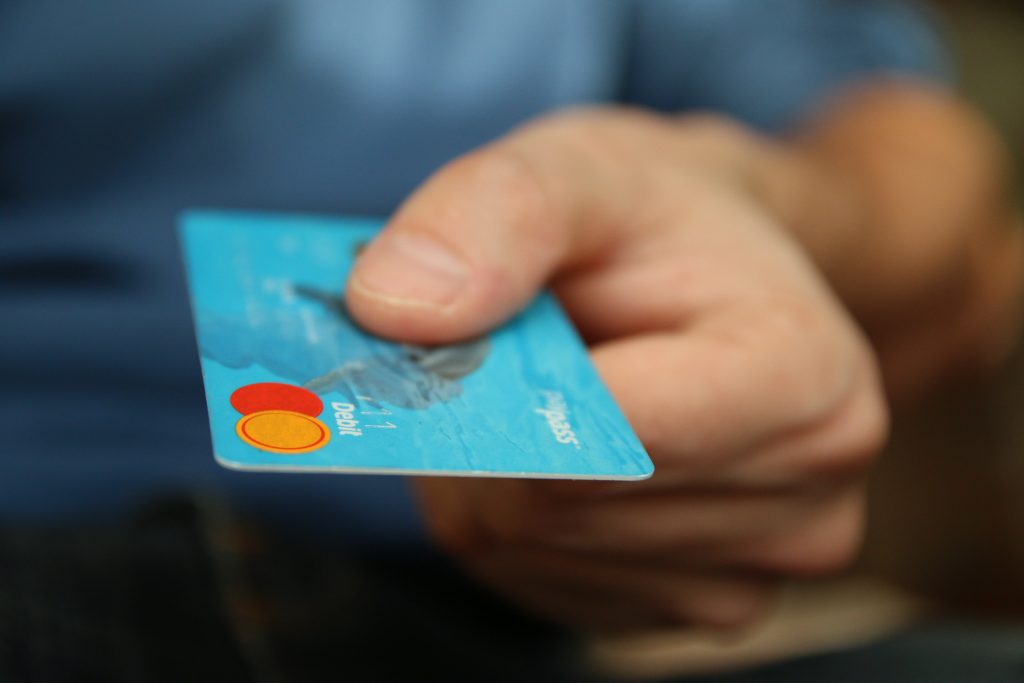Credit is considered any money or goods that you receive now and will pay for later. Credit can be a big help if used wisely, but because it is easy to get too much credit, debt often grows beyond what we can afford, and can become difficult to repay.
Anytime you hear “Buy now, Pay later” it is an offer to buy on credit.

Remember, money is never borrowed without a cost.
What’s good about using credit?
- With credit, items can be purchased and used while being paid for. This is really beneficial for larger priced items like a house or car. These things would otherwise be difficult to save and pay for all at once.
- If there is a large, unplanned or unexpected expense, credit can help pay for the expense. This is not ideal but can help in an emergency if you are unprepared.
- Some credit cards offer a points program. As long as you are not spending more than you can pay off in full each month, these credit card points can add up to free groceries and merchandise.
What’s bad about using credit?
- When purchased on credit, items can end up costing more. Credit generally means having to pay interest on what is owed, so the item will be more expensive in the end.
- Items that are wants (not really needed) may end up being purchased more often if you have credit. This can lead to overspending and living beyond your means.
- People who use credit frequently tend not to save as much for future purchases and emergency situations. Money that might go towards savings is often used to pay off existing credit debt.
When should I use credit?
- When the item you are purchasing will last longer than the payments (i.e. car or house).
- When you urgently need a necessity (i.e. dental, eye care or other health needs).
- When you will improve your life or income (i.e. paying for tuition or tools for a job).
Guidelines for using credit
- Use credit as a tool to buy things you need.
- To decide if you can afford credit, a good rule is to keep credit payments to 10-15% of your take home pay. This does not include a mortgage payment.
- Before you buy, ask yourself, “Do I really need this now?” If not, save towards your purchase instead.
- Consider how much the item will cost if purchased on credit and interest costs are considered. Is it worth it?
- Set limits for credit card debt. Have no more than two credit cards and never charge more than you can pay off in one month. It is a good idea not to use credit for things that will be done before they are paid for (i.e. eating out).
What do I do if I can’t pay off my debt?
- Don’t ignore the problem. If you need help, call a credit counselling agency like the Credit Counselling Society (nomoredebts.org). These not-for-profit credit counsellors will help you come up with a plan to repay your debt and reduce your stress about owing money. You can also check with Credit Counselling Canada to find a trusted credit counsellor in your area.
- Stop spending on anything that is not essential and decide to only spend on things that are essential (shelter, food, clothing and phone).
- Phone or write creditors. Let them know the issue and ask for assistance. See if it is possible to make smaller payments towards the amount owing.
- Ask your bank or credit union about a consolidation loan. This type of loan can be used to pay off high interest debt and then payment is made to the bank/credit union for the new loan. The interest rate for a consolidation loan is usually lower than the interest charged on credit cards. Do not continue to use your credit cards while the consolidation loan is being paid. Put any extra money towards paying down your debt.
In August 2020, Credit Counselling Canada conducted a survey of over 1500 Canadians who have debt. The Canadian Got Debt? survey showed that 4 out of 10 people don’t know where to go for trusted help with their finances if they need help.
You do not have to work through figuring out how to get out of debt alone. Credit Counselling Canada is a non-profit agency that provides help to Canadians looking for a trusted source of information to help them deal with debt and reduce financial worries. Consumer credit counselling services are offered at little to no cost and you will not be denied help based on the inability to pay.
Read these articles next:
Saving Money: How Much and What For
Simple Ways to Save Every Day
From the HomeFamily blog:
Questions to Ask Yourself About Credit
Debt is Not the Problem
The Joneses are BROKE






